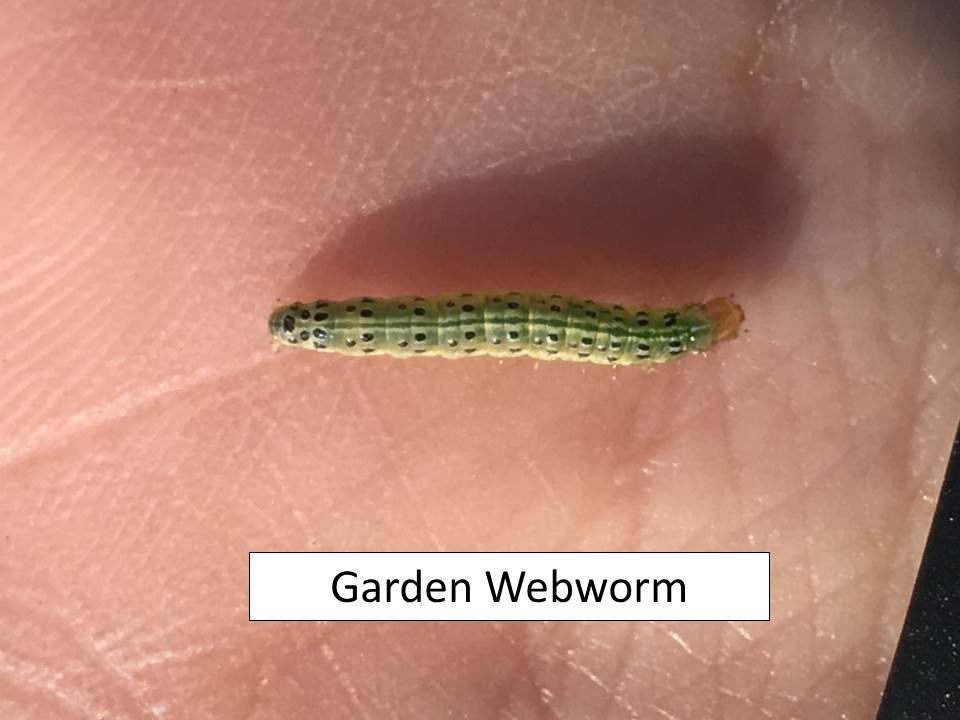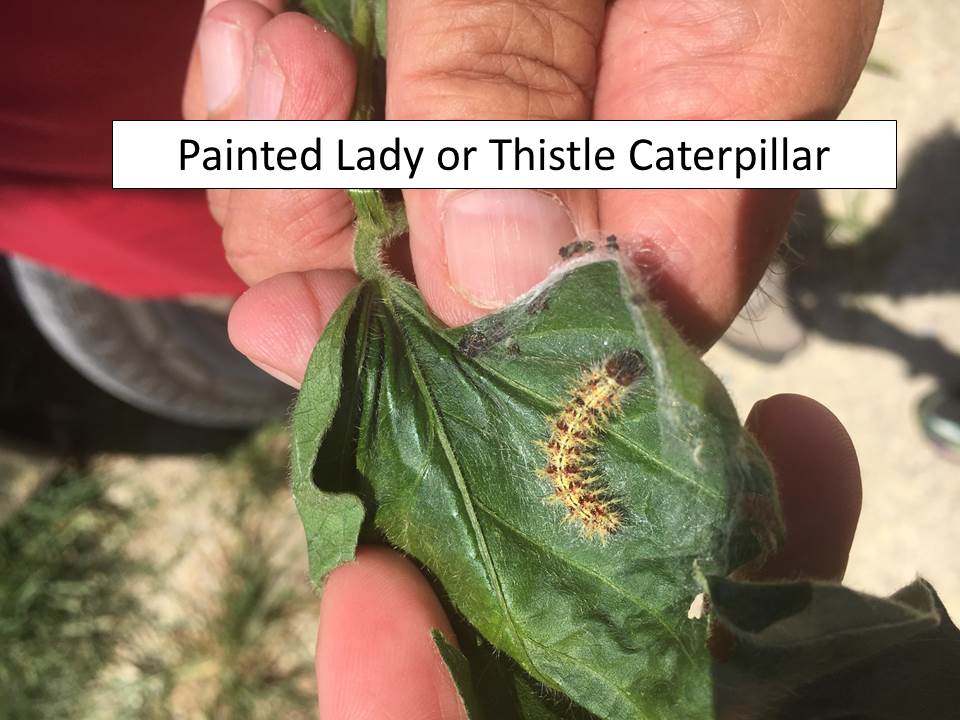–by Dr. Jeff Whitworth and Dr. Holly Schwarting
Green cloverworm larvae have been rapidly increasing all throughout the eastern 2/3rds of Kansas. These worms are very well camouflaged and usually feed on the underside of leaves, thus are not always evident until holes start showing up in leaves.

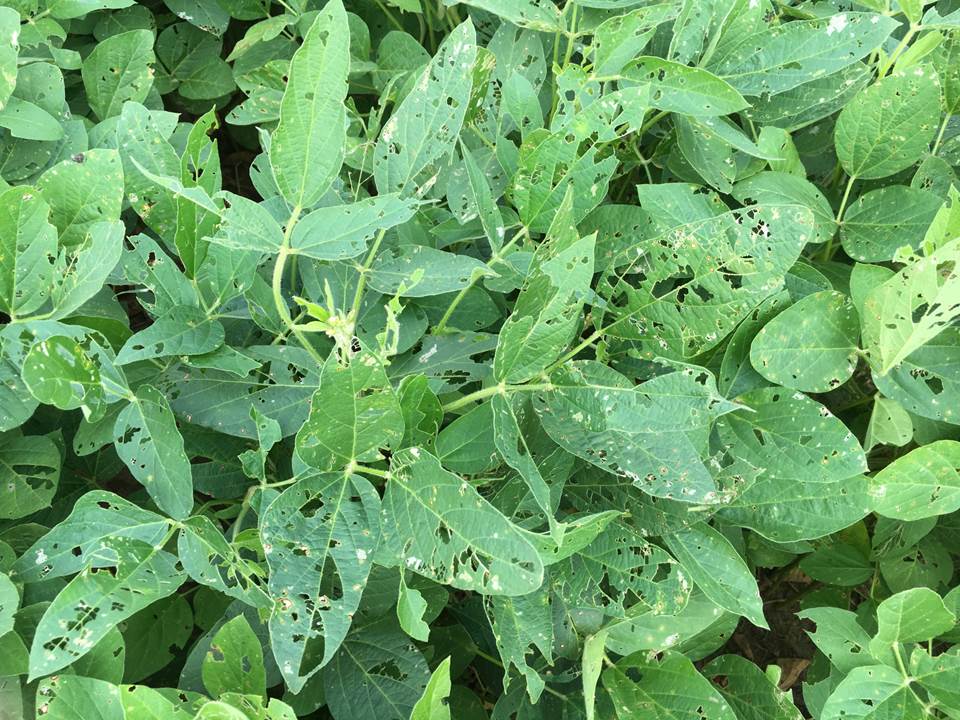
There has been concern relative to this leaf feeding but generally it is not until the density reaches 10-12 larvae/ row ft. with about 30% defoliation, and larvae are still small (1/2 inch or less) that an insecticide application may be justified. However, in past years when those cloverworm densities have been achieved there has been an entomopathogenic fungus that rapidly decimates the populations. This seems to be starting this year, as the first fungal-infected green cloverworm larvae were noticed on 23 August in several counties in Kansas. This fungus causes the green cloverworm larvae to stop feeding after 12-24 hours of infection and causes death 24-48 hours later. Sometimes, these infected larvae still look alive even in death, which is one of the characteristics of this fungus. There will probably be at least one more generation of green cloverworms to come.
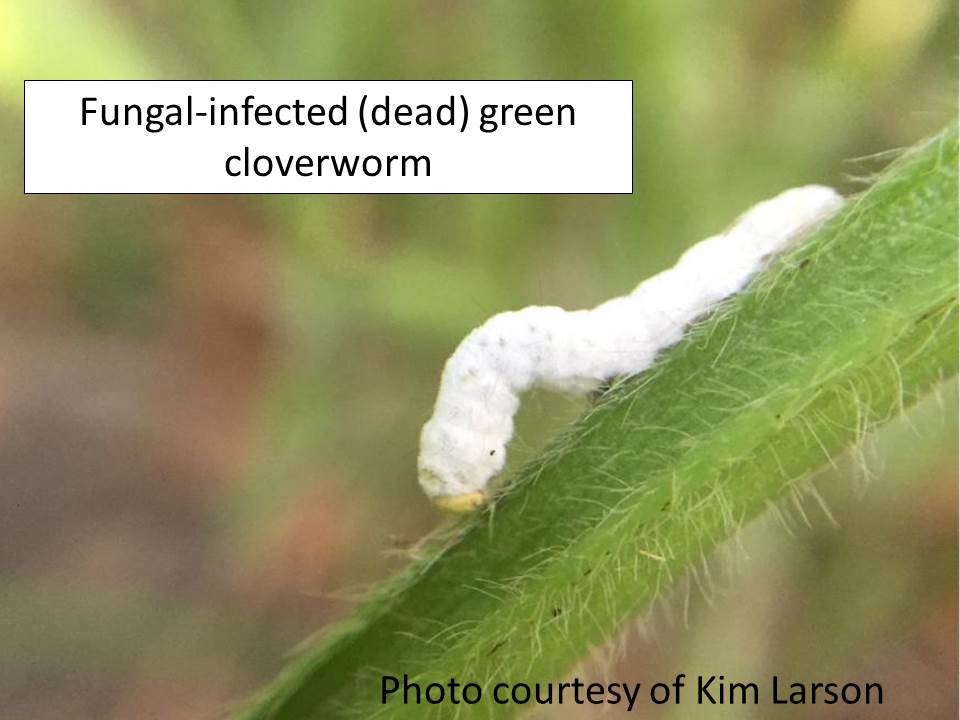
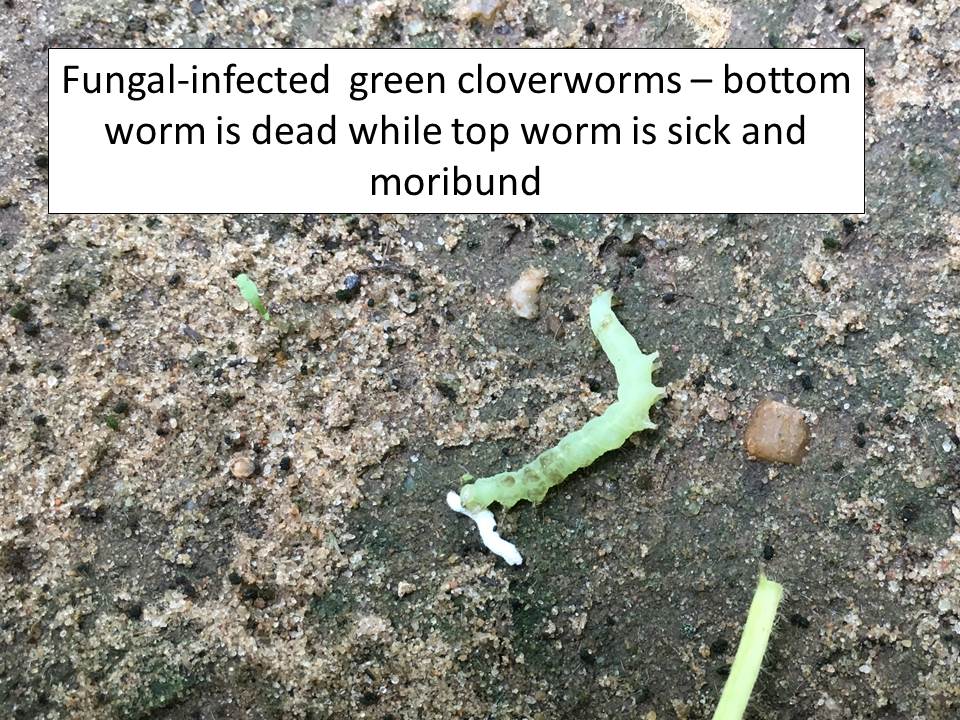
Don’t forget to continue monitoring for adult bean leaf beetles, stink bugs, and podworms, all of which may feed on pods and/or seeds. There will probably be one more generation of podworms this year. For more information on soybean pests please see Soybean Insect Management 2016, available here: https://www.bookstore.ksre.ksu.edu/pubs/MF743.pdf
